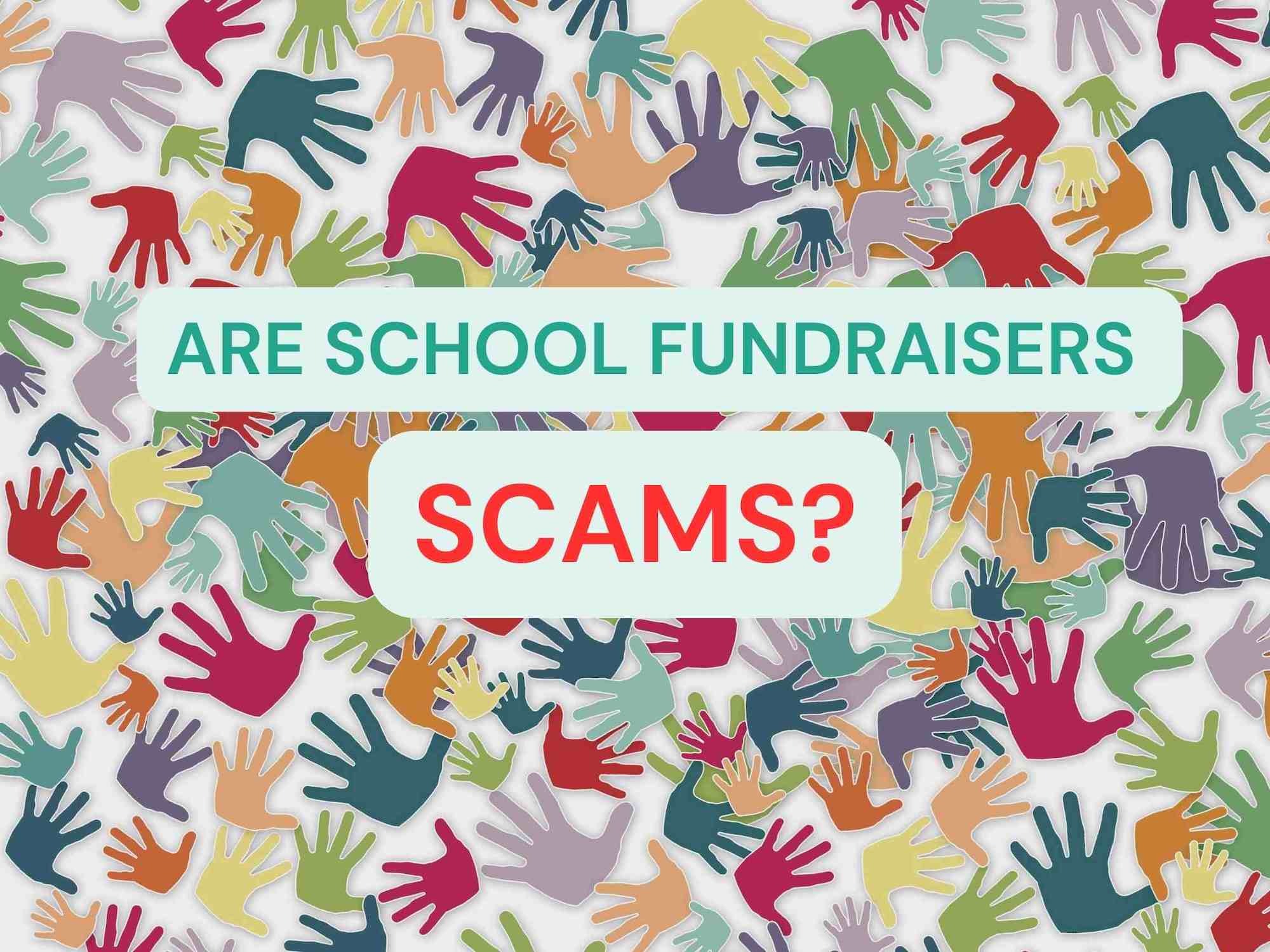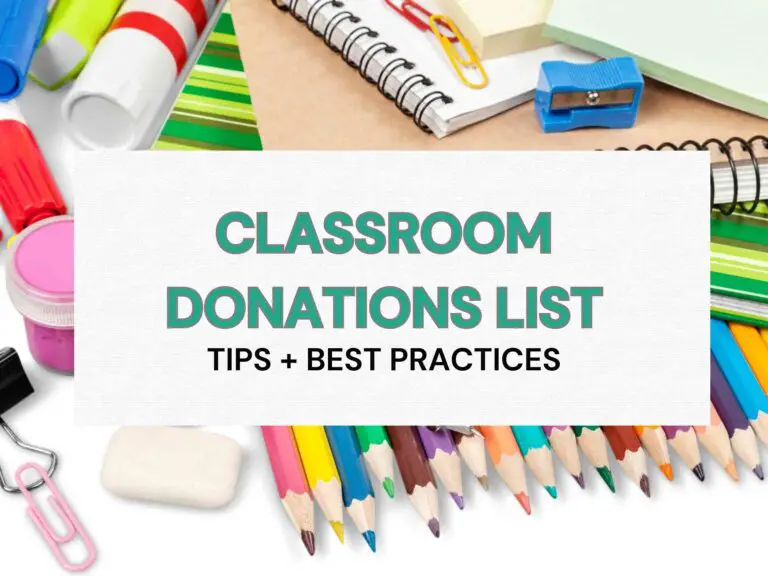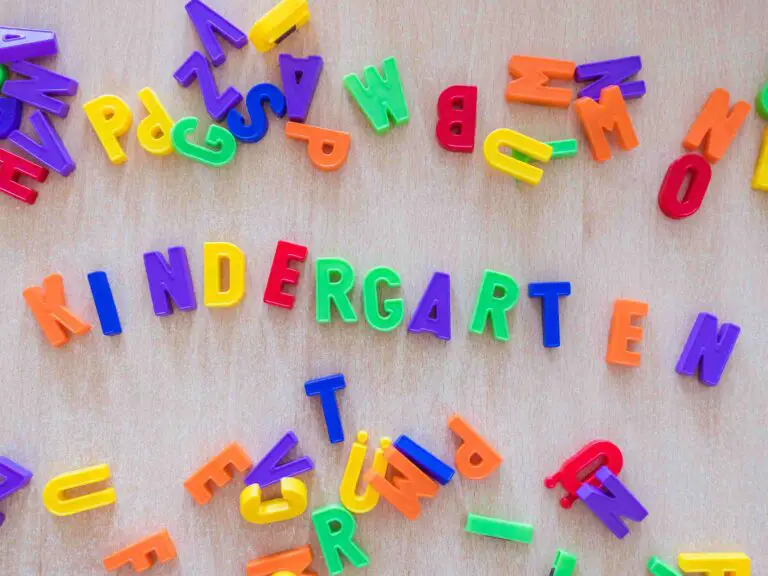Are School Fundraisers Scams? How do School Fundraisers Work?
This post may contain affiliate links. If you purchase through one of these links, I may receive a small commission at no extra cost to you. As an Amazon Associate, I earn from qualifying purchases.

Are school fundraisers scams?
Does your mailbox overflow with pleas for dollars, dimes, and volunteer hours, leaving you to question the legitimacy of these seemingly endless requests? As a parent or a local business owner, the sheer frequency of these solicitations can leave you scratching your head, questioning the validity and necessity of school fundraising initiatives.
Dive in with us as we unpack the intricacies of school fundraisers, pull back the curtain on why American schools have so many fundraiser events and always seem to be in need of more funds and delve into where all those dollars actually end up.
Is it all a cleverly disguised scam, or just a misunderstood part of the educational system? Buckle up, as we set off on an enlightening journey through the complex landscape of school fundraising.
How do school fundraisers work?

How are Schools Funded? How are the Public Funds Used?
When it comes to American education, fundraising is nearly as common as report cards and recess. But why do schools rely so heavily on this method of procuring funds? The answer lies in the complexities of school funding.
Public schools receive money from federal, state, and local sources, but these funds often fall short of covering the full spectrum of educational needs. Moreover, the allocation of public funding often depends on local property taxes, leading to significant disparities between affluent and less affluent districts.
The use of public funds, derived by schools from federal, state, and local taxes can vary widely from one district or state to another, but here are some common areas where these funds are typically allocated:
Personnel Salaries
This is often the largest portion of a school’s budget. It includes the salaries and benefits for teachers, administrators, and support staff such as maintenance and cafeteria workers.
Instructional Materials and Supplies
This covers textbooks, computers, software, and other teaching resources necessary for providing students with an effective education.
Facilities
Public funding goes toward the construction, renovation, and maintenance of school buildings and grounds. This includes paying for utilities and general upkeep.
Transportation
In many districts, public funds pay for school buses and other transportation needs.
Special Education Services
Public schools are legally required to provide appropriate educational services to students with disabilities. This often requires additional staffing and resources.
Professional Development
Some portion of the budget is usually set aside for teacher training and continuing education, to help educators stay current in their fields.
Thus, even though public funds form the bedrock of school funding, schools need to turn to fundraising to fill in the gaps and ensure they can offer a well-rounded education to all students.
Why do schools have fundraisers?

The funds raised through school fundraisers are typically directed toward areas that are not sufficiently covered by public funding. These can be wide-ranging, depending on the specific needs and priorities of each school and whether the school is public or a charter school that receives much lesser public funding. Regardless of how much the shortfall in funding is, the most common uses of school fundraising money are :
Extracurricular Activities:
Many schools use fundraising to support school clubs, sports teams, music programs, and other extracurricular activities that provide students with valuable opportunities for learning, growth, and community involvement.
Special Projects or Equipment:
Fundraisers can help schools purchase specific items or fund particular projects that are outside their normal budget. This might include technology upgrades, science lab equipment, or new playground facilities.
Counselors:
School fundraisers for counselors are the need of the hour with a severe lack of funding for the school’s in-house counselor resources. Many schools assign the funds raised through fundraising events towards providing better material, supplies and resources for the counselor.
Field Trips:
Often, fundraising money is used to provide educational field trips or other enrichment experiences that would otherwise be too costly for many students.
Classroom Resources:
In some cases, fundraisers may be used to purchase additional classroom resources, such as books or art supplies, that the school budget can’t fully cover.
Community Outreach:
Some schools may use fundraising money for community outreach programs, scholarships, or other initiatives that enhance their connections with the local community.
How do schools organize fundraisers?
Fundraisers come in many shapes and sizes, each tailored to fit different community dynamics, student populations, and school needs.
Traditional bake sales and car washes still hold their charm, transforming the schoolyard into a hub of communal activity while collecting donations for a worthy cause. Schools also often sell products – think chocolates, magazines, popcorn or even wrapping paper – and a portion of the sales revenue goes back into the school.
In the digital age, schools have also adopted online crowdfunding campaigns, allowing donations to be collected from a broader audience and providing a platform for schools to clearly articulate their needs and goals.
Moreover, special events like school fetes, fun runs, talent shows, music concerts or silent auctions serve dual purposes: fostering community spirit and engagement while raising necessary funds.
Are school fundraisers scams? How to handle multiple fundraiser requests?
Now that we’ve untangled the intricacies of school funding in America, and learned how American schools get their money, what they spend it on, and why they use fundraisers, we need to ask: are school fundraisers scams?
As a rule of thumb, school fundraisers aren’t scams. These efforts are generally well-intentioned attempts to garner resources for enriching students’ educational experiences. They’re usually just ways for schools to get extra money for things they need.
But, if you’re always getting asked for money, or if your kids feel left out because they’re not selling things, or if you’re not comfortable with your children going from house to house selling things, then it’s fair to be suspicious. You might also wonder why your school is asking for things it doesn’t really need.
The best way to tackle the pressure of giving in to multiple school fundraiser requests is
– by setting a fixed annual donation budget and
– by understanding the school’s funding situation by asking questions that require transparent disclosures.
– by remembering, at all times, that you are not obligated to make financial contributions and turning down fundraising requests is within your rights.
Request to pay a lump sum at the start of the year
If you can afford it, offer to pay a lump sum at the start of the year. Many schools allow such donations and then do not bother you or your kids with repeat fundraiser requests throughout the year.
Have a word with the teacher about the supplies she needs
Many school teachers in America, unfortunately, pay for supplies from their own pockets. Helping out with school supplies is one of the best ways to contribute to the school.
Many teachers create a classroom supplies donation list at the start of the year about the supplies their class typically needs. See if you can donate any physical items as per the list or make online purchases of those products.
Before making any donations, feel free to ask the teacher about the current state of school supplies, gadgets, and classroom infrastructure to assess whether the items on the list are justifiable. If you find any items on the list to be a bit extravagant or expensive, check with the teacher about why those items are must-haves.
Insist on transparent disclosures about all fundraising efforts
Many schools approach school supply charities, or other school-related charities to raise crowdfunding campaigns on behalf of the school.
Schools also regularly apply for grants for specific purposes. It is also common for schools to reach out to local businesses, large corporations, restaurant chains, as well as their alumni for additional funding.
Seek information on all such steps taken by the school, the total funds collected, and the causes for which the school is facing a shortfall of funds.
Insist on transparency in disclosures.
You are justified in suspecting scams if
– the school refuses to disclose fundraiser information in an honest, detailed, and transparent manner
– the school focuses more on profits than the cause for which the funds are to be allocated
– the school use high-pressure sales tactics
– the school promotes the use of non-traceable donation methods like wire transfers or gift cards instead of checks or cards
Express your displeasure about children’s undue exploitation and take firm steps to prevent it
School authorities and fundraiser proponants often note that fundraisers teach valuable life skills—teamwork, communication, goal setting, and financial literacy.
But in any many cases, it is found that children who participate in the fundraisers, meet their sales targets are rewarded with unreasonable incentives like an extra recess, extended deadlines for submissions, offered creative prizes and appreciated at school events and on school websites.
These kids are the ones that become the school’s favourite children while those who don’t participate in fundraisers or don’t contribute enough time or money are made to feel like outsiders. The financial gap between children that support fundraising and those that don’t is obviously shown thereby making the entire fundraising event a cause for embarassment and shame for both the child and the parents.
If you notice such practices, express your displeasure about them and offer alternative solutions for fundraising that do not involve undue exploitation of children.






